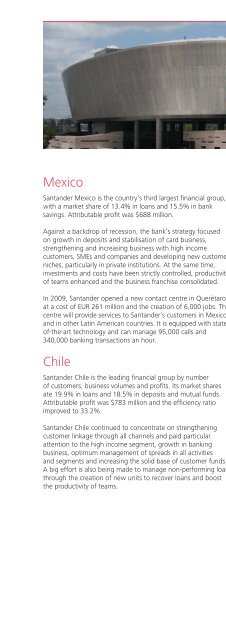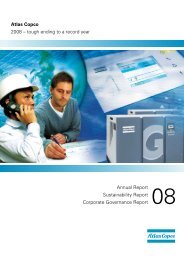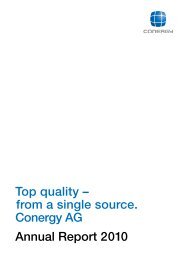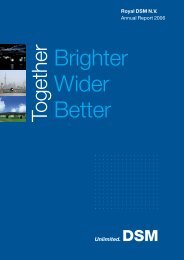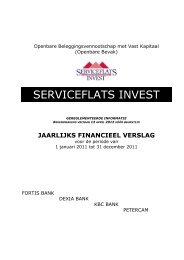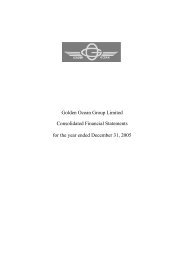Create successful ePaper yourself
Turn your PDF publications into a flip-book with our unique Google optimized e-Paper software.
786. Unified Good Governance CodeIn 2007, Banco <strong>Santander</strong> carried out a process of adjustmentto the Unified Good Governance Code, approved by the CNMVon 22 May 2006, based on the principle of self-regulation,which was completed in 2008 with the approval of new Bylawsand, already in <strong>2009</strong>, with new Rules and Regulations of theBoard of Directors.Banco <strong>Santander</strong> follows a large majority of therecommendations of the Unified Code, and does not follow(i.e., does not adopt in full) a small number thereof (4 outof 58). Such recommendations from which the Bank departsare described below, together with the rationale for theboard’s position.1. Number of members of the board of directorsAlthough the current number of directors (19) exceeds themaximum number of 15 proposed by recommendation 9, theboard believes that its size is commensurate to the scale,complexity and geographical diversification of the Group. In theopinion of the board, the manner in which it operates, sittingboth as a full body and through committees —with delegatedsupervisory, advisory, <strong>report</strong>ing and proposal-making powers—,guarantees its effectiveness and the participation of its members.2. Independent directorsThe board believes that its unity is essential to determine itscomposition. All the directors must act in furtherance of theinterests of the Bank and of its shareholders and are equallyresponsible for the decisions of the board. The board believesthat independence must apply to judgment, be an attribute ofall the directors, and be based on the probity, integrity,reputation and professionalism of each of them. In the opinionof the board, it would be contrary to such principles to establisha different treatment for independent directors than forother directors.Accordingly, it would not be in line with the aforementionedprinciples to adopt the recommendation that the board ofdirectors not propose the withdrawal of any independentdirector prior to the expiration of the term fixed by the bylawsfor which he was appointed, except for just cause, determinedby the board following a <strong>report</strong> of the appointments andremuneration committee, with just cause being deemed to existwhenever such director fails to perform the duties inherent in hisposition or if he becomes subject to any of the circumstancesthat deprive him of independence. In this case, the decision ofthe board not to adopt recommendation 31 is also based on thefact that there may be reasons of corporate interest which,in the opinion of the board itself, may lead to a proposal forwithdrawal from the board for reasons other than thosecontemplated in the recommendation.The board has also not deemed it appropriate to adoptrecommendation 29 to the effect that the term of office ofindependent directors be limited to a maximum of 12 years,as this would lead to having to dispense with the servicesof directors whose continuation on the board serves thecorporate interest because of their qualifications, contributionand experience, without such continuation affectingtheir independence.<strong>Annual</strong> <strong>report</strong> <strong>2009</strong> Corporate governance <strong>report</strong>


